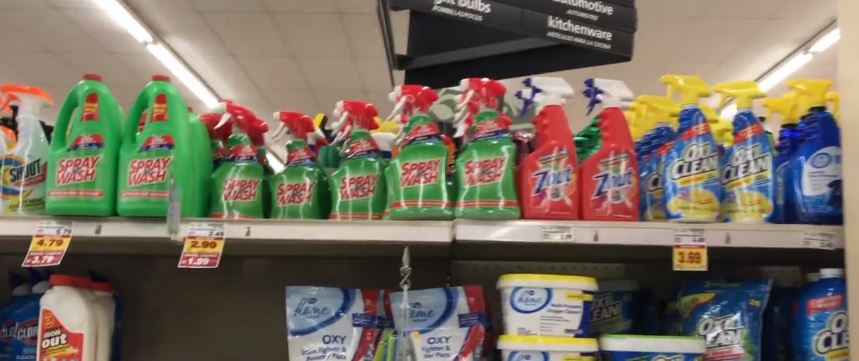LAS VEGAS (KTNV) — The coronavirus crisis has forced the closure of all nonessential businesses across Nevada and many shoppers have spun into panic buying which has spiked demand to never-before-seen levels and left store shelves empty.
“What we have seen with this huge demand is three months worth of inventory wiped out within a week's time," said Paul Enos, CEO of the Nevada Trucking Association.
Enos says the demand is like Christmas season shopping on steroids and now rising to record levels.
Trucks are being loaded from distribution centers like the Smith's grocery store center in Henderson near St. Rose Parkway and Interstate 15, but there's a problem.
"Because it is taking so long to get in and out of these facilities, these distribution centers, to be loaded and unloaded we are at the highest [truck driver wait times] we have ever been nationally," added Enos.
As of Friday, the national wait time for a truck driver at a distribution center is 6 hours, 23 minutes.
Enos says the distribution centers are struggling to load the trucks which is causing a delay for replenishment to stores.
The Federal Motor Carrier Safety Administration has relaxed hours-of-service rules for truckers in order to expedite replenishment of badly needed grocery items, fuel and COVID-19 response items.
“The government at all levels, I have never seen them as responsive of truck drivers of the trucking industry the supply chain as they have been in the last week," said Enos.
Supply chain experts say the products are flowing to the stores but it may be some time before store shelves look full again.
"Our manufacturers have their production facilities running at full tilt 24/7 they are redeploying some of their production lines to areas that are most in need of production," said Leslie Sarasin, president and CEO of FMI, Food Industry Association.
Some of the products that continue to be in high demand are paper products and household cleaners.
Enos says truck driver safety remains a top priority during the crisis.
“Safety is our paramount concern it always has been and continues to be," said Enos.
"We have to provide an equivalent level of safety during this crisis and responding to it and if a truck driver says they’re tired they have to take 10 hours off before they can start the clock again," added Enos.




